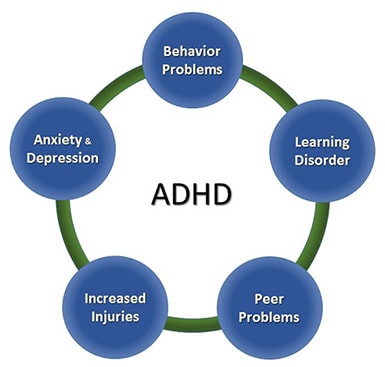Unlocking Strategies: Effective Treatment for Adult ADHD
Living with Adult Attention Deficit Hyperactivity Disorder (ADHD) can present unique challenges, impacting various aspects of daily life. While there might not be a definitive cure, there are numerous effective treatment options that empower individuals to manage symptoms and lead fulfilling lives. In this comprehensive guide, we'll explore these treatment avenues, debunk common misconceptions, and delve into the question of whether emerging technologies like Neuralink can impact ADHD.
Understanding Adult ADHD: The Basics
Adult ADHD involves persistent challenges in attention, impulse control, and hyperactivity. Unlike childhood ADHD, symptoms may manifest in subtler ways, affecting work, relationships, and overall well-being. Recognizing the presence of ADHD in adulthood is the first step towards seeking effective treatment.
Common Misconceptions about ADHD Cure
Before delving into treatment options, it's essential to dispel some common misconceptions surrounding the cure for ADHD:
Can Neuralink Cure ADHD?
The question of whether Neuralink, a company exploring brain-machine interface technology, can cure ADHD remains speculative. While technological advancements are promising, a definitive cure is not currently available.
How Can I Cure ADHD?
Seeking a cure for ADHD requires a nuanced approach. Rather than a one-size-fits-all solution, a combination of strategies tailored to individual needs proves most effective.
Is There a Cure for ADD/ADHD?
As of now, there is no outright cure for ADHD. However, effective management strategies can significantly improve symptoms and enhance overall well-being.
Effective Treatment Options for Adult ADHD
Medication:
Stimulant Medications: Commonly prescribed stimulants like methylphenidate and amphetamine derivatives enhance neurotransmitter activity, improving focus and impulse control.
Non-Stimulant Medications: Options like atomoxetine and guanfacine offer alternatives for individuals who may not respond well to stimulants.
Therapy:
Cognitive Behavioral Therapy (CBT): CBT helps individuals recognize and modify negative thought patterns and behaviors associated with ADHD. It provides practical tools for coping with challenges.
Psychoeducation: Understanding ADHD through psychoeducation equips individuals with knowledge about the condition and effective management strategies.
Lifestyle Changes:
Structured Routines: Establishing structured daily routines helps individuals with ADHD manage time and tasks more effectively.
Regular Exercise: Physical activity has proven benefits for ADHD, aiding in regulation of neurotransmitters and improving focus.
Adequate Sleep: Prioritizing a consistent sleep routine contributes to cognitive function and emotional regulation.
Nutritional Interventions:
Balanced Diet: While there isn't a specific diet that cures ADHD, a balanced diet rich in omega-3 fatty acids, vitamins, and minerals supports overall brain health.
Reducing Additives: Some individuals find benefit in reducing artificial additives and food colorings in their diet.
Mindfulness and Meditation:
Mindfulness Techniques: Practices such as meditation and deep breathing exercises can help individuals with ADHD cultivate focus and reduce stress.
Addressing the Question of a Cure for ADHD: Can ADHD Be Cured?
While a definitive cure for ADHD remains elusive, a combination of the aforementioned treatment options can lead to effective symptom management. Emphasizing the journey towards successful management, rather than a cure, reframes the narrative around living with ADHD.
Natural Cures for ADHD in Adults: Separating Fact from Fiction
Ways to Cure ADHD:
Holistic Approaches: Integrating holistic strategies, such as mindfulness, exercise, and dietary adjustments, contributes to a comprehensive approach for managing ADHD.
ADHD Can Be Cured:
Effective Management: Shifting the focus from cure to effective management encourages individuals to explore and adopt strategies that work best for them.
ADHD Natural Cures:
Complementary Approaches: While natural remedies may not offer a cure, they can complement traditional treatments and contribute to overall well-being.
Best Natural Cure for ADHD:
Individualized Approaches: The best natural cure for ADHD varies from person to person. Experimenting with different strategies helps individuals identify what works best for them.
Can ADHD Be Cured Without Medication?
Personalized Solutions: While medication is a common and effective approach, some individuals choose to manage ADHD without medication, relying on therapy, lifestyle changes, and holistic methods.
In Conclusion: Navigating the Path to Well-being with Adult ADHD
In conclusion, treating and managing Adult ADHD involves a multifaceted approach. Acknowledging the absence of a definitive cure, individuals can focus on personalized strategies that enhance their quality of life. From medication and therapy to lifestyle changes and complementary approaches, the journey to well-being with ADHD is unique for each person. Remember, seeking professional guidance, embracing a supportive network, and exploring various strategies can lead to a fulfilling and empowered life despite the challenges posed by Adult ADHD.
FAQ: Unlocking Strategies for Effective Treatment of Adult ADHD
Q1: What is Adult ADHD, and how does it differ from childhood ADHD?
A: Adult ADHD involves persistent challenges in attention, impulse control, and hyperactivity. Unlike childhood ADHD, symptoms may manifest in subtler ways, affecting work, relationships, and overall well-being.
Q2: Can Neuralink Cure ADHD?
A: The potential of Neuralink, a brain-machine interface technology, to cure ADHD is speculative. While promising, there is no definitive cure available through this technology as of now.
Q3: How Can I Cure ADHD?
A: Seeking a cure for ADHD requires a nuanced approach. Rather than a one-size-fits-all solution, a combination of strategies tailored to individual needs proves most effective.
Q4: Is There a Cure for ADD/ADHD?
A: As of now, there is no outright cure for ADHD. However, effective management strategies can significantly improve symptoms and enhance overall well-being.
Q5: What are the Medication Options for Adult ADHD?
A: Stimulant medications like methylphenidate and non-stimulants such as atomoxetine are commonly prescribed. Stimulants enhance neurotransmitter activity, while non-stimulants offer alternatives for those who may not respond well to stimulants.
Q6: What Role Does Therapy Play in Treating Adult ADHD?
A: Cognitive Behavioral Therapy (CBT) helps individuals recognize and modify negative thought patterns and behaviors associated with ADHD. Psychoeducation equips individuals with knowledge about the condition and effective management strategies.


Comments
Post a Comment